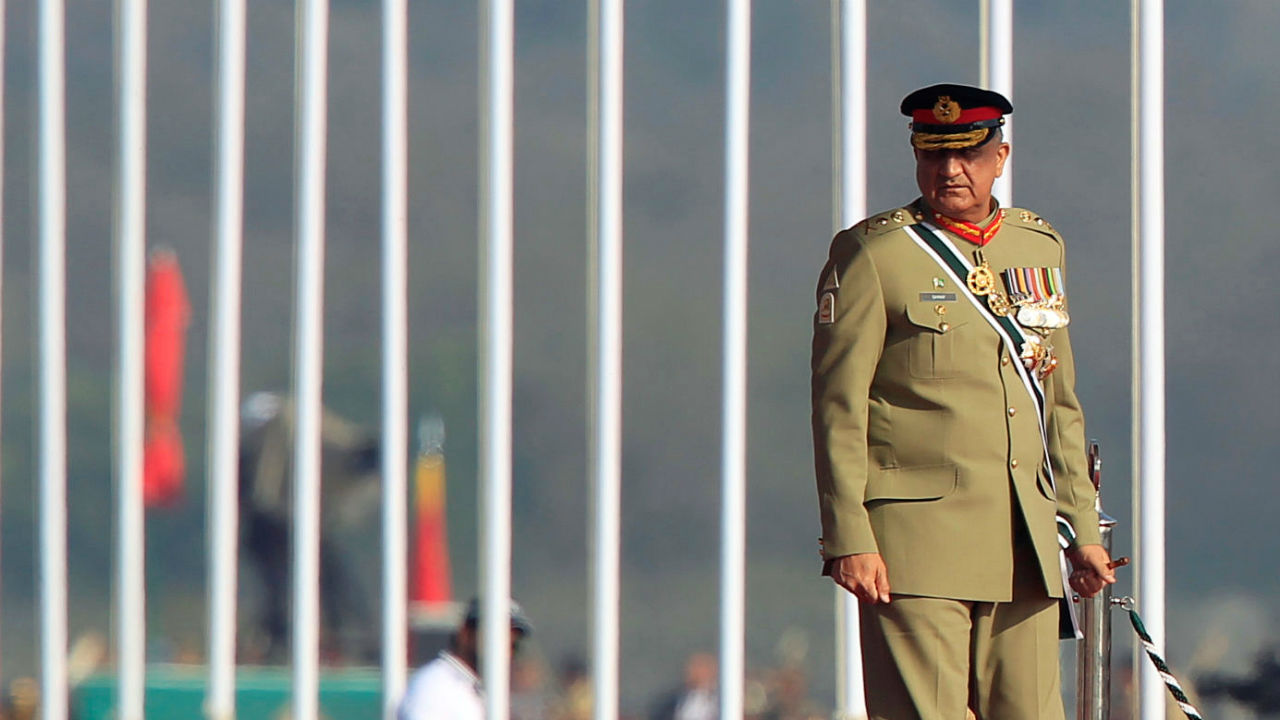New Delhi: Pakistan Army Chief Qamar Javed Bajwa on Thursday said that it was “time to bury the past and move forward”, advocating for peace in India-Pakistan relations, but reiterated that India will have to create a “conducive environment” by taking conciliatory steps in Kashmir.
This is the second time this year that Bajwa has publicly made a statement that suggested that the two South Asian rivals should get back to the table.
Earlier on February 3, Bajwa had said at the Pakistan Air Force Academy that it was “time to extend a hand of peace in all directions”. About two weeks later, the Indian and Pakistani military issued a joint statement that they would strictly observe the ceasefire along the Line of Control.
Speaking at the Islamabad Security Dialogue on Thursday, Bajwa again used a geo-economic argument for normalising relations with India.
“Stable Indo-Pak relation is a key to unlock the untapped potential of South and Central Asia by ensuring connectivity between East and West Asia. This potential, however, has forever remained hostage to disputes and issues between two nuclear neighbours,” he stated.
Stating that Kashmir at the heart of the India-Pakistan conflict, Bajwa noted that it was “important to understand that without the resolution of Kashmir dispute through peaceful means, process of sub-continental rapprochement will always remain susceptible to derailment due to politically motivated bellicosity”.
He, then, underlined his overture to India. “However, we feel that it is time to bury the past and move forward”.
The Pakistan army chief qualified that for “resumption of peace process or meaningful dialogue”, India will “have to create conducive environment, particularly in Indian Occupied Kashmir”.
A day earlier, Pakistani Prime Minister Imran Khan had also given a similar message at the same forum.
“We will not be able to take full advantage of our geo-strategic location until we have regional peace, until our relations with our neighbours and our trade ties do not improve,” said Khan.
Pakistan had previously asserted that there could not be a resumption in peace talks till India reversed its actions on the nullification of Article 370 of the Indian constitution that gave autonomy to the state of Jammu and Kashmir.
“Unfortunately, the events that transpired on August 5 led to break down of all communications with India. Till the time they don’t take the first step, we can’t move forward. If the issues are resolved it would benefit them [India] also as they would be connected to the rest of South Asia,” Khan said on Wednesday.
Over the last month, Pakistan has not publicly reiterated the demand over Article 370 but has talked in vaguer terms of India taking steps in Kashmir to improve the environment for restarting talks.
India’s traditional position has been that terror and talks cannot go together. However, it has not been reiterated explicitly by the establishment in recent remarks.
During a lecture on India’s neighbourhood policy, Indian foreign secretary Harsh Vardhan Shringla stated that India desired “good neighbourly ties with Pakistan”. At the same time, he put the ball in Pakistan’s court. On March 15, he stated, “However, any meaningful dialogue can only be held in a conducive atmosphere and the onus is on Pakistan to create such an atmosphere.”
